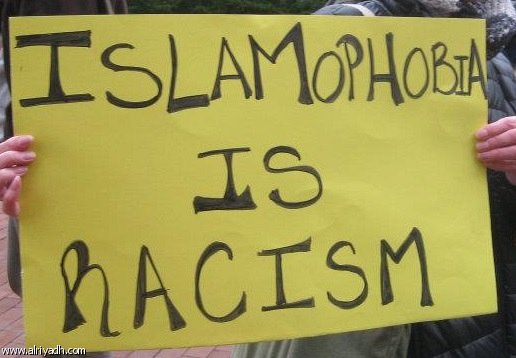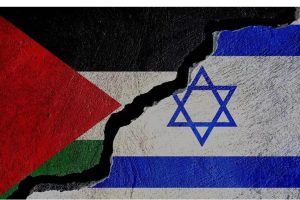
Islamophobia was assessed to have been boosted mostly by three factors, namely, the US elections, Immigrant issue in Europe, and the rise of Populism and Far-Rights in Europe.
By: Moin Qazi*
Islam is a massive faith with 1.6 billion followers. A considerable section of the community lives as a minority community in many countries, battling issues of stereotyping, discrimination, and identity.
With the powerful influence of Islamophobic brigades, there has been a massive surge of hatred against Islam and its adherents. Muslims continue to be projected as uniformly fundamentalist, violent, and anti-secular. This powerfully flawed narrative and negative stereotyping continue to fuel Islam’s distorted perceptions.
Islam, actually, is a religion of peace: That is its aim and goal. The Quran’s powerful commandment should leave one in no doubt: “Whosoever killeth a human being for other than manslaughter or corruption in the earth, it shall be as though he had killed all of mankind, and whoso saveth the life of one, it shall be as if he had saved the life of all mankind.” (Q5:32).
Also Read: Be Careful of the Trap of Deploying Peacekeeping Forces to Gaza
The Qur’an, in its essence, promotes justice, peace, and freedom. Compassion and kindness underpin its core message. To understand this, one has to read the entire Qur’an and not isolated verses. No verse in the Qur’an is a standalone commandment. Each not only has a bearing on the other but amplifies it too.
The voice of the text is the fruit of a dialogue. For some, the peace of God is through his sword; for others, it is found in his unbounded mercy. The entire paradigm is built around human interpretation. The pacifists and the terrorists read the same text but present fundamentally different interpretations. It is important to consider the reader and interpreter of the Qur’an.
Fundamentalists and progressive Muslims
The voice of Qur’an heard by Islamic fundamentalists is not the same as the voice heard by progressive Muslims. It is essential that the entire verses of the Qur’an are read and understood in conjunction with each other. Reading and interpreting verses in isolation is a very wrong way of engaging with the Qur’an. It would yield a meaning that conforms to your own worldview.
Also Read: The Forty-Four-Days of Glory: Azerbaijan’s Struggle for Justice and Peace
For example, the current modern definition of jihad is contrary to the linguistic meaning of the word, and also contrary to the beliefs of most Muslims who equate it with religious extremism. The word jihad stems from the Arabic root word J-H-D, which means “strive.” Other words derived from this root include “effort,” “labour” and “fatigue.”
Essentially, jihad is a struggle to stand by one’s religion in the face of oppression and persecution. The effort may come in the form of fighting the evil in your own heart or standing up to a dictator. The first time the word is used in the Qur’an, it signifies a “resistance to oppression” (25:26) that is spiritual and intellectual rather than militant. The moralist approach espouses jihad through conscience (jihad bin nafs) while a more radical wing advocates jihad through the sword (jihad bin saif). In mainstream Muslim tradition also, the greatest jihad was not warfare but reform of oneself and one’s society. Muhammad explained that true jihad was an inner struggle against egotism.
There is a lot of misunderstanding on account of this verse: “slay them wherever you catch them” (Qur’an 2:191). But who is this referring to? Who are “they” that this verse discusses? The “them” are those terrorists who persecuted and killed innocent people for their faith. Some verses are very often “snipped” out of context by mischief creators for inflaming emotions, fostering grave misunderstandings, and perpetuating violence on all sides. Qur’an 3:8 pre-emotively calls out people who cherry pick verses as “perverse” people, declaring, “…those in whose hearts is perversity seek discord and wrong interpretation of [the Quran]”.
Islam does permit fighting but only in self-defense—in defence of religion, or on the part of those who have been expelled forcibly from their homes. The permission given in Q22:40-41 to fight was only given to “those against whom war is waged.” At the same time, it also lays down strict rules which include prohibitions against harming civilians and against destroying crops, trees, and livestock. It is critical that we understand this critical dimension of Islam.
Also Read: Palestine Solidarity Month: A Collective Movement for Al-Aqsa and Palestine’s Freedom
First, Muslims cannot pre-emotively initiate a war. They are only allowed to act in defence. War can be waged if there is a situation where defenceless people are under attack. A war is considered just when one party does not cease aggression in spite of a proposed truce.
If the enemy inclines toward peace, Muslims have to follow suit: “But if they stop, God is most forgiving, most merciful” (Q2:192). Also read: “Now if they incline toward peace, then incline to it, and place your trust in God, for God is the all-hearing, the all-knowing” (Q8:61).. Second, Muslims are not allowed to transgress divine injunctions: “fight for the cause of God, those who fight you, but do not transgress, for God does not love the transgressors.” (Q2:190). Third, Muslims have to treat prisoners of war with honour. Prisoners have to be released after the war, either in exchange for Muslims captives or only as a favour.
Historian Sir William Muir records how the Prophet instructed his companions to treat Prisoners of War (POWs). The Refugees had houses of their own, received the prisoners with kindness and consideration. “Blessings on the men of Madinah!” said one of these in later days: “they made us ride, while they themselves walked afoot; they gave us wheaten bread to eat when there was little of it, contenting themselves with dates.”
Persecution is worse than slaughter
Also Read: Hassan al-Turabi: A Controversial Thinker from Sudan
Contrary to what many historians have portrayed, Islam did not impose itself by the sword. This has been emphatically made clear in the Qur’an: “There must be no coercion in matters of faith!” (2: 256). In words quoted by Muhammad in one of his last public sermons, God tells all human beings, “O people! We have formed you into nations and tribes so that you may know one another“(Q49:13).
Moreover, Islamic wars weren’t just to defend Muslims against persecution–but to defend Christians, Jews, and people of all faiths. All verses addressing fighting are pre-conditioned with rules of self-defence. The Qur’an says that “persecution is worse than slaughter” and “let there be no hostility except to those who practice oppression” (Quran 2:190-193).
On his victorious rerun to Mecca after 20 years, the prophet bore no animus for the locals who had persecuted him and his band forcing them to emigrate to Medina. He offered blanket forgiveness, the only condition being that Meccans accept universal freedom of conscience.
In keeping with this spirit of tolerance that the Prophet demonstrated during his lifetime, today’s Muslim thinkers feel there exists no imperative to distance themselves from this tradition of mutual respect and peaceful coexistence. They are plumbing it to find resources to help them adapt to the modern world and to shape it on those lines. Muslim religious scholars are exhuming and popularising principles and practices that allowed Muslims in the past to coexist with others, in peace and on equal terms, regardless of creed and faith. They keep reminding themselves that the seventh-century Medina accepted Jews as equal members of the community (umma) under the Constitution of Medina drawn up by Prophet Muhammad in 622 CE.
Also Read: Who Exactly is the RSF Group Shaking Sudan?
Muslim reformers are returning to the foundational text, the Qur’an and its commentaries and other early sources of religion–authentic sayings of Prophet Muhammad, early historical chronicles – for seeking solutions in these troubled times. They are combing their literature for getting better light on moral guidelines and ethical prescriptions.
There is no better testament to Prophet Muhammad’s credo of tolerance and forgiveness than the attestation of non-Muslim historian Stanley Lane-Poole: “The day of Mohammad’s greatest triumph over his enemies was also the day of his grandest victory over himself. He freely forgave the Quraysh all the years of sorrow and cruel scorn in which they had afflicted him and gave an amnesty to the whole population of Mecca.”
*The article was first published at islam">The Kashmir Monitor and the author is a regular contributor to this newspaper and can be reached at: [email protected]
Also Read: The Two-State Solution (Palestine–Israel) in Historical Perspective
Miraj News Agency (MINA)

































 Mina Indonesia
Mina Indonesia Mina Arabic
Mina Arabic